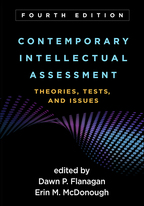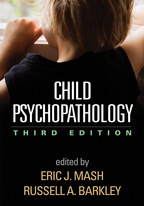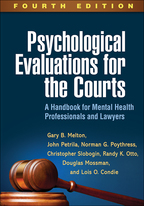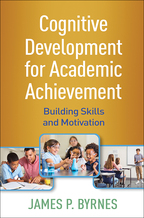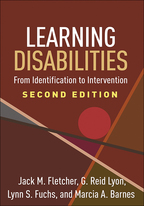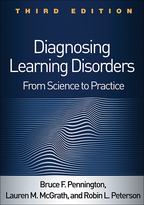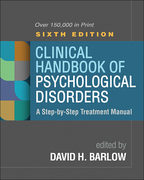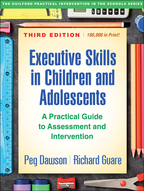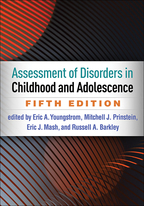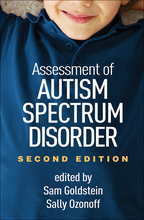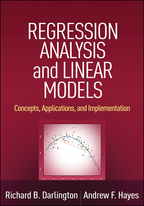Contemporary Intellectual Assessment
Fourth Edition
Theories, Tests, and Issues
Edited by Dawn P. Flanagan and Erin M. McDonough
Foreword by Alan S. Kaufman
I. The Origins of Intellectual Assessment
1. A History of Intelligence Assessment: The Unfinished Tapestry, John D. Wasserman
2. A History of Intelligence Test Interpretation, Randy W. Kamphaus, Anne Pierce Winsor, Ellen W. Rowe, & Sangwon Kim
II. Contemporary Theoretical Perspectives
3. The Cattell–Horn–Carroll Theory of Cognitive Abilities, W. Joel Schneider & Kevin S. McGrew
4. Assessment from the Perspective of Multiple-Intelligences Theory: Principles, Practices, and Values, Jie-Qi Chen & Howard Gardner
5. The Triarchic Theory of Successful Intelligence, Robert J. Sternberg
6. Redefining Intelligence with the Planning, Attention, Simultaneous, and Successive Theory of Neurocognitive Processes, Jack A. Naglieri & Tulio M. Otero
7. The Parieto-Frontal Integration Theory: Assessing Intelligence from Brain Images, Richard J. Haier & Rex E. Jung
8. Intelligence-as-Process, Personality, Interests, and Intelligence-as-Knowledge: A Framework for Adult Intellectual Development, Phillip L. Ackerman
III. Contemporary Intelligence, Cognitive, and Neuropsychological Batteries, and Associated Achievement Tests
9. Wechsler Preschool and Primary Scale of Intelligence—Fourth Edition, Wechsler Intelligence Scale for Children—Fifth Edition, and Wechsler Individual Achievement Test—Third Edition, Dustin Wahlstrom, Susan Engi Raiford, Kristina C. Breaux, Jianjun Zhu, & Lawrence G. Weiss
10. The WJ IV Tests of Early Cognitive and Academic Development, Fredrick A. Schrank & Barbara J. Wendling
11. Wechsler Intelligence Scale for Children—Fifth Edition Integrated, Susan Engi Raiford
12. The Kaufman Assessment Battery for Children—Second Edition and KABC-II Normative Update, Lisa Whipple Drozdick, Jennie Kaufman Singer, Elizabeth O. Lichtenberger, James C. Kaufman, Alan S. Kaufman, & Nadeen L. Kaufman
13. The Differential Ability Scales—Second Edition, Colin D. Elliott, Joseph D. Salerno, Ron Dumont, & John O. Willis
14. The Woodcock–Johnson IV: Tests of Cognitive Abilities, Tests of Oral Language, Tests of Achievement, Fredrick A. Schrank, & Barbara J. Wendling
15. The Cognitive Assessment System—Second Edition: From Theory to Practice, Jack A. Naglieri & Tulio M. Otero
16. The Wechsler Adult Intelligence Scale—Fourth Edition and the Wechsler Memory Scale—Fourth Edition, Lisa Whipple Drozdick, Susan Engi Raiford, Dustin Wahlstrom, & Lawrence G. Weiss
17. The Wechsler Nonverbal Scale of Ability: Assessment of Culturally and Linguistically Diverse Populations, Jack A. Naglieri & Tulio M. Otero
18. The Reynolds Intellectual Assessment Scales—Second Edition and the Reynolds Intellectual Screening Test, Tara C. Raines, Cecil R. Reynolds, & Randy W. Kamphaus
19. The NEPSY-II, Robb N. Matthews & John L. Davis
20. The Universal Nonverbal Intelligence Test—Second Edition: A Multidimensional Nonverbal Alternative for Cognitive Assessment, R. Steve McCallum & Bruce A. Bracken
IV. Relevance of Tests of Intelligence, Cognitive Abilities, and Neuropsychological Processes in Understanding Individual Differences
21. Use of Intelligence Tests in the Identification of Giftedness, David E. McIntosh, Felicia A. Dixon, & Eric E. Pierson
22. Use of Ability Tests in the Identification of Specific Learning Disabilities within the Context of an Operational Definition, Dawn P. Flanagan, Vincent C. Alfonso, Michael Costa, Katherine Palma, & Meghan Leahy
23. Use of Intelligence Tests in the Identification of Children and Adolescents with Intellectual Disability, Ryan L. Farmer & Randy G. Floyd
24. Intellectual and Neuropsychological Assessment of Individuals with Sensory and Physical Disabilities and Traumatic Brain Injury, Scott L. Decker, Julia Englund Strait, Alycia M. Roberts, & Joseph Ferraracci
25. Testing with Culturally and Linguistically Diverse Populations: New Directions in Fairness and Validity, Samuel O. Ortiz, Nicole Piazza, Salvador Hector Ochoa, & Agnieszka M. Dynda
V. Linking Assessment Data to Intervention
26. Cognitive Hypothesis Testing: Linking Test Results to the Real World, Catherine A. Fiorello & Kirby L. Wycoff
27. Cross-Battery Assessment, the Cross-Battery Assessment Software System, and the Assessment–Intervention Connection, Dawn P. Flanagan, Michael Costa, Meghan Leahy, Katherine Palma, Vincent C. Alfonso, & Samuel O. Ortiz
28. Linking Cognitive Abilities to Academic Interventions for Students with Specific Learning Disabilities, Nancy Mather & Barbara J. Wendling
29. The Kaufman Test of Educational Achievement—Third Edition, Wechsler Intelligence Scale for Children—Fifth Edition, and Wechsler Intelligence Scale for Children—Fifth Edition Integrated: Integrating Data for a Comprehensive Evaluation of Specific Learning Disability, Jaclyn D. Morrison, Jennie Kaufman Singer, & Susan Engi Raiford
VI. Contemporary and Emerging Issues in Intellectual, Cognitive, and Neuropsychological Assessment
30. Using the Joint Test Standards to Evaluate the Validity Evidence for Intelligence Tests, Alyssa Montgomery, Erica Torres, & Jamie Eiseman
31. Using Confirmatory Factor Analysis to Aid in Understanding the Constructs Measured by Intelligence Tests, Timothy Z. Keith & Matthew R. Reynolds
32. Functional Cattell–Horn–Carroll Nomenclature for Practical Applications, Richard W. Woodcock, Denise E. Maricle, Daniel C. Miller, & Ryan J. McGill
33. The Emergence of Neuropsychological Constructs into Tests of Intelligence and Cognitive Abilities, Daniel C. Miller & Denise E. Maricle
34. Enhancing the Identification of Reading Disorders with Neuropsychological Tests, Marlene Sotelo-Dynega
35. Incorporating Recent Advances in Understanding Word-Reading Skills into SLD Diagnoses: The Case of Orthographic Mapping, David Kilpatrick
36. The Role of Cognitive and Intelligence Tests in the Assessment of Executive Functions, Denise E. Maricle & Erin K. Avirett
37. The Role of Cognitive and Intelligence Tests in DSM-5 Diagnosis of Specific Learning Disorder, Erin M. McDonough, Dawn P. Flanagan, Megan Sy, & Vincent C. Alfonso
38. Should our Future Include the Integration of Evidence-Based Neuropsychological Services into School Settings?, Elizabeth Power & Rik Carl D’Amato
39. Intellectual, Cognitive, and Neuropsychological Assessment in Three-Tier Service Delivery Systems in Schools, George McCloskey, Jaime Slonim, & Deanna Rumohr

